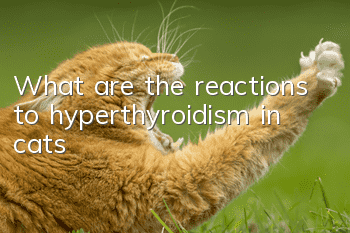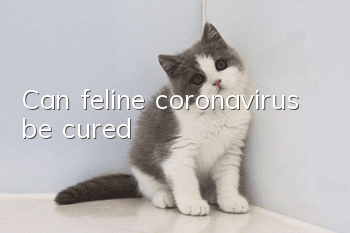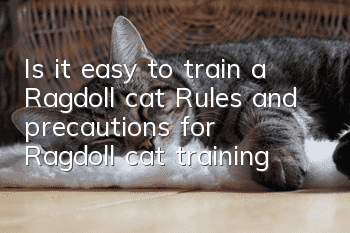What are the reactions to hyperthyroidism in cats?

Reactions of cat hyperthyroidism:
The cat’s body will secrete too much thyroid hormone, causing the cat’s body to burn calories too fast, and the cat will always be in a high metabolism. state. Cats will experience symptoms of hyperactivity, increased appetite, increased defecation, and weight loss. This is especially true in older cats, who can suddenly become energetic. The cat's temper will become worse and worse, it will no longer be as docile as usual, and its hair will become frizzy. Cats may also experience symptoms such as loss of energy and appetite, vomiting and diarrhea.
Treatment methods for cat hyperthyroidism:
1. Drug treatment: Using drugs that inhibit thyroid secretion can effectively control the condition, but in most cases it requires long-term use and daily use. Two pills. Drugs have certain side effects, including decreased appetite, vomiting, rash, etc.
2. Surgical treatment: Surgical removal of the thyroid gland can quickly bring the condition under control, but it requires general anesthesia, which carries certain risks for elderly cats. This is especially true if elderly cats have heart and kidney diseases. careful.
3. Radioactive iodine therapy: A very fast, effective and relatively safe method. Radioactive iodine is selectively absorbed by the cat’s thyroid gland and destroys diseased thyroid tissue, while not causing damage to other tissues and organs. This method has no side effects and does not require anesthesia for the cat. Treatment can be achieved by injecting drugs, and the cure rate is relatively high.
4. Food therapy: For cats whose thyroid indicators do not rise significantly or cats who cannot take pills every day, you can consider using prescription food that does not contain iodine to treat existing thyroid tumors. It has no therapeutic effect.
- If you have cats at home, how can you prevent them from scratching and biting wires?
- What causes bleeding in cats?
- How often should Ragdoll cats be dewormed?
- Can cats eat tomatoes?
- How to get rid of fleas on cats
- Can cats take anti-inflammatory drugs that humans take?
- When is the best time to neuter a female cat?
- Four Secrets of Cat Tongues Do You Know?
- The role of feline distemper monoclonal antibodies
- Will a cat’s personality change after being neutered?



